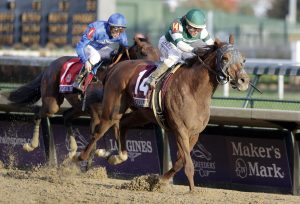The gambling industry, which includes online casinos and sports betting, is booming. As long as there is sport – the results of tournaments will be disputed, betting on them will continue. This is the case not only in sports, but in any field where competitions are held. Bets are also placed on Eurovision and film festivals. If there is a demand, there will be a supply, and there will always be betting offices that will accept bets.
Betting on horse racing occupies a special place on the global betting market, although the attitude to it varies from region to region of the world due to the historical and cultural peculiarities of particular countries.

Both sport and healthy gambling are part of human life. It is clear that without betting on horse racing we won’t have horse racing hippodromes with their traditions, and will there be horse breeding itself?
What is the essence of the gambling industry
At first sight, sports betting and online casinos seem to be united only by their gambling affiliation. However, there is more than meets the eye.
Sports betting is betting on the outcome of sports events. Bookmakers offer their clients (bettors) to choose from a list of alternatives.
Sporting events take place in reality, their outcome is not random, but poorly predictable. A team can win, lose or draw,” says the expert.
Clients of bookmakers bet money on the chosen options, and if they come true, they win more than they wagered. And if they lose, respectively, they lose money. Bets are placed on different events and even groups of events, and the winnings depend on the odds set.
Unlike sports betting in casinos, players (gamblers) try to guess random events. The honesty of casinos has to be verified by expertise: offline casinos have to check the game boards, online fast payout casino have to check the software that generates random numbers, our interviewee explains.
Betting on virtual horse racing
Virtual horse racing betting is a betting process on a betting site based on a computer simulation of virtual racecourse animals (dogs or horses).
The development of computer technology is changing everything around us. Sporting events are no exception. Not so long ago races were held only with the participation of animals with or without riders. Today, everyone has the opportunity to make a bet with high odds on a virtual race. Passion and excitement in them is not inferior to classic, traditional races, so let’s understand how to bet on the virtual races and what are the actual features of this direction.
Getting to know virtual horse racing
Virtual horse racing is a pioneer among virtual sports. However, cybersport and other online forms of competition came much later than horse races, which are based on the computer’s artificial intelligence.

By virtual races should be understood as a computer software simulation of the race involving racing animal breeds (usually horses). The format of such competitions is quite unusual – a person or a real horse is not involved. The competition takes place at the level of software algorithms. The “artificial” form of origin has not affected the extreme popularity of this Internet betting discipline in many countries.
Virtual horse racing is a software simulation developed exclusively by a competent IT provider.
The following types of betting are the most popular among electronic horse racing:
- Betting on the winner of the race.
- A bet on the winner of a prize.
- A bet to determine the first two racers.
- A tricast bet.
Anyone can bet on a specific one-race winner. In addition, it is possible to bet on a sequence of several racehorses to determine the order in which they cross the finish line (this can be two or three contestants). It is also possible to bet on the specific place that a particular horse will take at the end of the race.
A bit of history
Horses are noble, elegant pets that have been around since the cradle of human existence. They are thought to have been domesticated more than 5,000 years ago. Horses have always been highly prized for their speed, agility and endurance. The first attempt to select the fastest individual from the herd comes at the time of the beginning of horse breeding. An integral part of growing up in nomadic tribes was learning to ride. Apart from manly jousting duels, horse racing was an excellent way for gallant knights to show off their best to the ladies.

The emotional excitement around such competitions led to the emergence of betting during races and contests. Betting, the first of the entertainments, eventually became almost synonymous with the word horse racing. Later, almost all racecourses were equipped with betting facilities. Betting outside the hippodrome was at first banned, but gradually became mainstream entertainment. Newspapers provided information on winning odds and results. Television has made it possible to find out all this instantly, and the internet allows you to bet in real time.
These days, there are plenty of websites that allow their users to bet in real time. Other sites teach the complexities of online betting, types of betting, odds of winning, etc. A number of virtual horse racing sites have been developed in the likeness of the real thing, to give city dwellers a chance to find out what it’s like to ride a horse. Eventually it all merged into online betting.
Incidentally, some avid fans find it strange to watch online horse racing and place bets instead of attending the real event. Nevertheless, there is an ethical advantage to doing so. What many professional gamblers do not realise is that competition at horse races is often fatal for both horses and jockeys. There is also a perception that various medications are used to achieve the desired result.
In the 21st century, when mature societies no longer use horses for farming or transportation, isn’t it time for a more humane approach to horse racing as well? Don’t these wonderful animals deserve the right to accompany us for an occasional walk instead of taking risks for our bets?
We believe that in today’s society, virtual horse racing can gradually replace real horse racing. Horses more than deserve this right for their many years of service to man on fields, roads, battlefields and racetracks.
